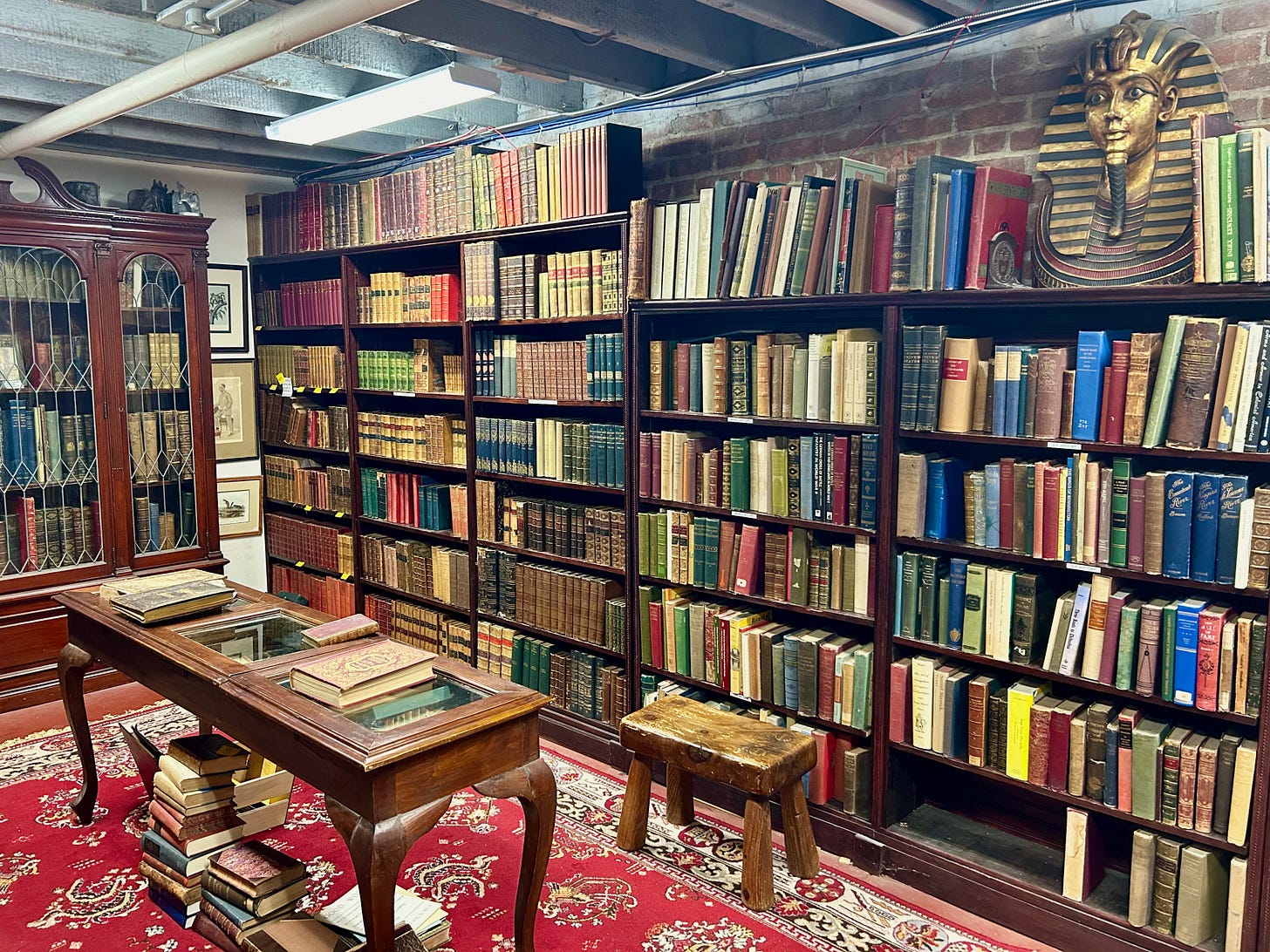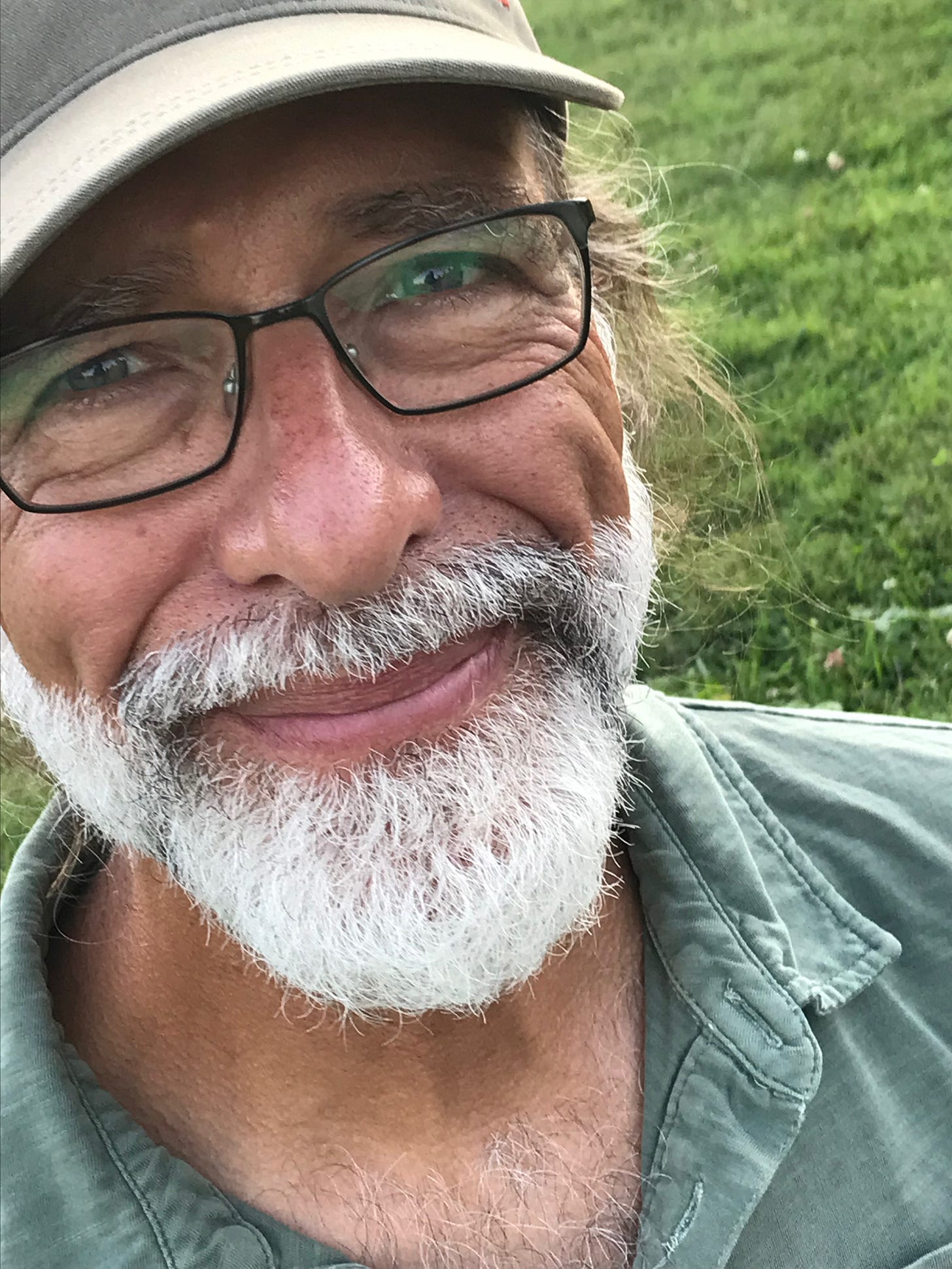Thank you for reading Shy Guy Meets the Buddha: Reflections on Work, Love, and Nature. If you enjoy these mindfulness-themed biographical essays and would like to show your support, please consider becoming a valued patron for only $5 a month. Or if you like, “Buy me a coffee” is a one-time way to show your generosity. Thank you! 💚
Who is the Real Teacher?
Last night, I randomly chose a book from my “spiritual” shelf to peruse briefly, as I often do before my evening meditation. The book was Joseph Goldstein’s early volume on Buddhist meditation, The Experience of Insight. I turned to the first page of text and read:
“Every so often, a book appears that has special value for people who are students of what is.”
This is the late Robert K. Hall, psychiatrist and Dharma teacher, introducing Goldstein’s book. I’d read The Experience of Insight before but hadn’t registered those words: students of what is. This time the phrase knocked me awake. I sensed it was telling me something important.
I closed the book. I had enough to consider for now.
That’s the power of a mindfulness practice. Even after five and a half years of daily meditation, I still often receive fresh and helpful new insights when my mind is quiet. Mindfulness can put one in a receiving state such that powerful truths seem to materialize out of.... well, out of what is.
In this case the truth I realized, or at least grasped in a new way, was that I am the student, and “what is” is my teacher. This should maybe have been obvious, but until now, I’d thought of authors and speakers as my teachers, and the world around me as the subject they were teaching (or, more specifically, paying attention to that world as the subject). That’s true enough. But here it felt as though I’d been... I don’t know, bumped ahead in my educational track, advanced from the classroom to an internship, or a work-study program.
I understood that now my teacher is my life, the entire contents of my conscious awareness, the now that I exist in—not the Buddha; not Joseph Goldstein or Thich Nhat Hanh or Ajahn Chah; not the next speaker at the monthly Dharma talk; not the sutras or the Tao te Ching or some mindfulness podcast. These past teachers served a purpose—and will continue to offer refresher courses, inspiration, and reminder—but ultimately, the mindfulness literature and the formal Buddhist canon can only point to the real classroom, the place where I need to be in order to learn about life and all it holds: the here and the now; the space where I live, the body I call by my name, the present moment.
I’ve long been aware that a teacher can take up too much space in your head, sometimes becoming an obstacle to learning. I remember when I first discovered the works of J. Krishnamurti. I was entranced, consumed. For a while it was like the man was the little devil on my shoulder and I couldn’t think for myself. I had to put the books down, allow the author’s ideas to simmer and assimilate, and even learn to discard those concepts that didn’t resonate or feel right to me.
Wisdom is knowing when your research, your search, is no longer serving its orignal purpose, but rather has become a distraction or a form of entertainment, a way to live in dreams of enlightenment or to be temporarily stimulated rather than actively applying and living the lessons.
So, the books are no longer my primary teacher; the world and my life are—and I want to be a good student. No skipping school, no staring out the window lost in thought (well; maybe a little of that!). My job is to replace the concepts of mindfulness, impermanence, and emptiness with pure presence in the here and now. That means stripping it all down to two things: Me, and What Is.
Those two subjects alone can provide nourishment and learning for the rest of my life. Actually, the two are one, and I don’t so much study them as exist within them, with a practiced, nonjudgmental, choiceless awareness.
What Is What Is?
“What is,” is everything that exists as fact, regardless of my opinions of such; it is what I see and what I don’t see; what I know and what I don’t know; it’s the me that is fully present and aware of myself and my surroundings—the me that is conscious of my consciousness—and it is also the me that is lost in thought or preoccupied with problems and plans for hours or days on end.
The key here is the distinction between the world, and what I think of the world.
“That guy who just cut me off is an asshole!” I may exclaim. Even if everyone I know agrees with my opinion, it’s not a fact. That guy may not even know he cut me off. Or maybe he does know, maybe he did it on purpose, but either way, I don’t know if he’s an asshole or not. I’m just projecting. My opinion is not what is.
On the other hand, my actual behavior, my anger and my outburst, that is what is. It’s what is happening right now.
If I am jealous because my girlfriend is spending time with another guy, there are two things that are true; 1) I am jealous, and, 2) my girlfriend is spending time with another guy. Now, there are a host of feelings, projections, and speculations I can further indulge from there (she doesn’t love me, I must be an unattractive loser, I’m going to kill that guy), but none of those are what is. When I stay with what is, I’m practicing mindfulness. It’s a helpful practice because it keeps me from doing something I might regret, and it also helps me to learn more about myself and the nature and source of my feelings.
If I torment my girlfriend with demands and denunciations, threats and appeals, if I find her friend and beat the hell out of him, slash his tires, is that going to teach me more about what is, about my jealousy, about the causes and conditions of my current situation? It may be that my girlfriend is spending more time with others because I’m suffocating her with my insecurities. If that is indeed a fact, I’m only going to see it if I’m willing to spend time facing it, learning about it, rather than obscuring the facts with my projections, judgments, and fears.
The fascinating thing about what is is that it’s right in front of us all the time, and yet we so often miss it altogether. It’s in my body, in my driveway, my living room, my car, at work, at the mall; I don’t have to fly anywhere, I don’t have to go to church or the meditation hall, I don’t have to learn a special language or technique. All I have to do is sit still, breathe, and let things be as they are. (Breathing is an example of what is; why not notice it once in a while?)
What is can often seem like a secret garden because no matter how many times we go through the gate, we don’t see the beauty, the stillness, the wonder of it all, nor do we notice the profound peace amongst which all these fruits and flowers—and bugs and manure—exists, until we drop the truth-altering filters; the judgements, opinions, projections, conditioned reflexes, feelings, fears, etc. Then that secret garden, which is just the everyday environment, can seem like a miracle. It is a miracle!
A Frightening Challenge Worth Facing
Granted, it does take courage to make oneself vulnerable, to spend intimate time with what is. Feelings, insecurities, scarcity fears, the state of the world and of our lives can be hard to accept, to allow, without acting on the impulse to fix it all to our liking, or to run and hide. Sometimes I let my likes and dislikes, desires and aversions, set the agenda. But do I really even know what I like? What I fear? What I want? What does that even mean; to like or dislike, to want or not want? Is the threat I fear real or an illusion? Is the long-desired goal going to bring the satisfaction I crave? Not knowing the answers to these questions can often mean feeling like a victim of stormy and unpredictable circumstances.
I have found that when I listen to what is; to the wind and the rain, the nearby traffic and a distant motorcycle, the ringing in my ears and the endless chattering of my mind, to my friend’s troubles, my partner’s worries, my own anger and jealousy and fear—listening not reactively but with curiosity and patience—things just seem to go a little better for me. I actually find deep, genuine satisfaction in the simple things, and my desires for grander ones seem to fall away; they’re just no longer worth the trouble. Why bother trying to be a superstar when life is so good right here, right now?
Huh, I guess I have been paying attention to that real mentor after all. What Is is a teacher worth listening to.
DB 🙏💚
Wait! Before you go, will you take one moment to hit that LIKE and/or SHARE button? This one simple action can be surprisingly effective at helping to spread the word and build my readership. Thank you! And remember, upgrading to a paid subscription will help support the hard work behind Shy Guy Meets the Buddha, and tips are very much appreciated (“Buy me a coffee”). 💚








I remember when I first got into mindfulness, I devoured every book I could find. I was like a kid in a candy store, thinking that if I just read enough, I'd instantly achieve enlightenment. But then, I realized I was spending more time reading about life than actually living it. It was like studying maps instead of going on a hike. I eventually had to put the books down and step outside, quite literally. It was messy, it was unpredictable, but it was real. And that's where the actual learning began. Your analogy of moving from the classroom to an internship is spot on. Sometimes, you just have to get your hands dirty.
Don, I love this. Not only for the insight, but how it confirms that after years of practice/study/confusion/torment it arrives in a flash. A micro second. Yes! This! And yes, our 'teachers', gurus, favorite author and books, and everything we experience are facilitators - not our teachers. Our own life is our only teacher. And as we learn, we become facilitators for others. It is really a beautiful, spectacular thing. Growth is limitless and it begins and ends with us. Thank you Don. You are a wonderful faciltator for me, and I like to believe, new friend. 💛